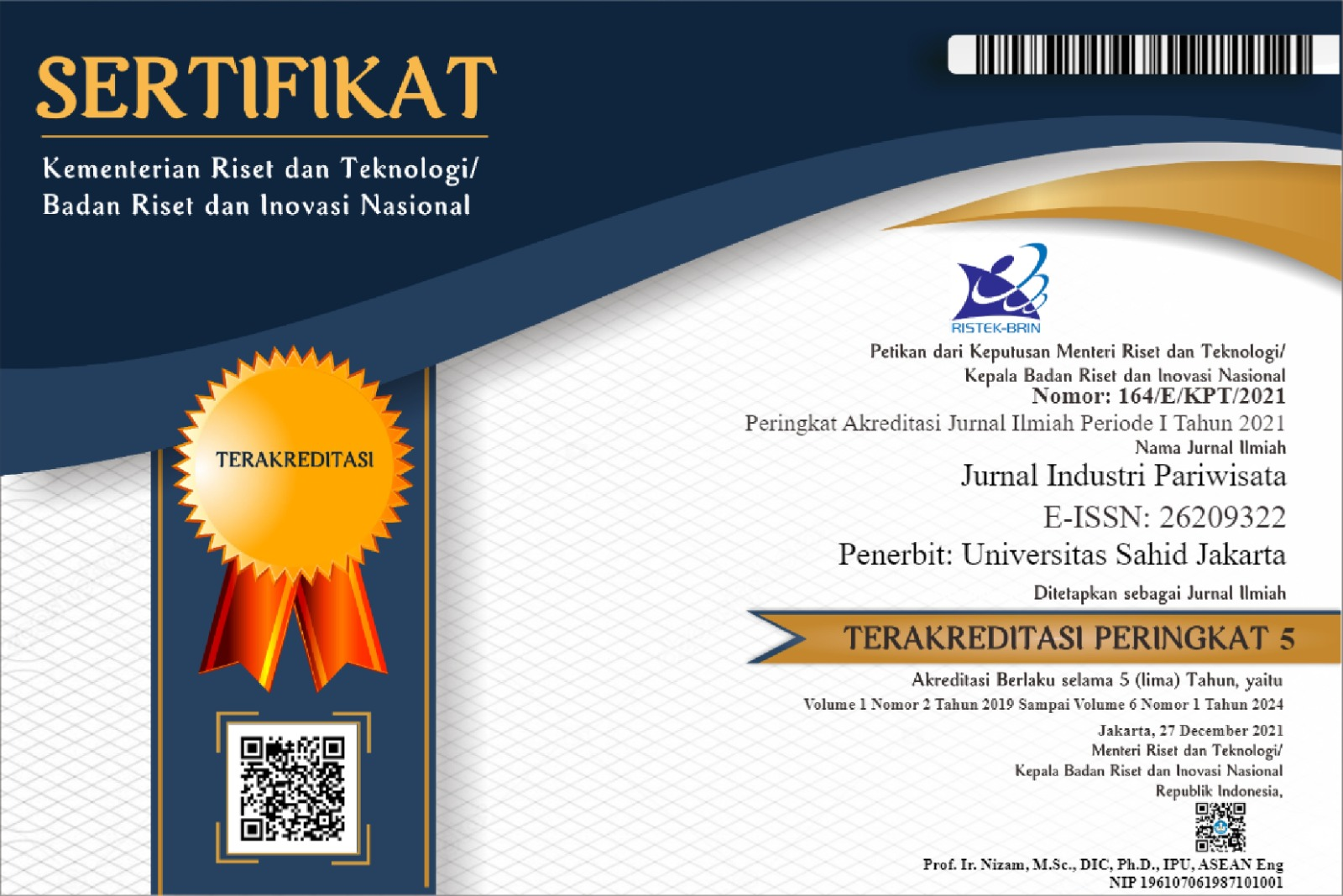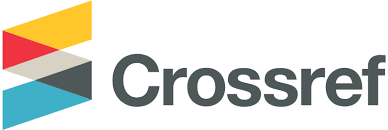STRATEGI EDU AGROECOPARK TOURISM PADA INDUSTRI RUMAH POTONG HEWAN
Abstract
Salah satu manfaat kajian perumusan Strategi Edu Agroecopark Tourism Pada Industri Rumah Potong Hewan Terpadu Kota Bogor sebagai bahan dalam penyusunan inovasi, penelitian dan pengembangan urusan pilihan pertanian (termasuk peternakan dan kesehatan hewan), serta sebagai masukan komponen rencana aksi pada dokumen Rencana Pembangunan Jangka Panjang (RPJP) 2019-2023. Tujuan kajian mendapatkan rumusan dan ukuran keberhasilan Strategi Edu Agroecopark Tourism Pada Industri Rumah Potong Hewan seiring revolusi industri 4.0. Metode kajian menggunakan analisis AWOT yaitu Analytical Hierarchy Process (AHP) dan Strength-Weakness-Oportunity-Threat (SWOT). Hasil analisis AWOT menghasilkan rumusan strategi pelayanan open kitchen Pangan Asal Hewan berbasis budaya higienis dan sanitasi yang terukur dengan score 0,201 untuk menentukan kegiatan-kegiatan wisata, peternakan dan kesehatan hewan yang efektif, dan efisien.
Keywords
Full Text:
PDF (Bahasa Indonesia)References
Pojoh, B., Syarief, R., & Seminar, K. B. (2010). Model Pengembangan Agro-eco-industrial Park Di Kota Bitung Provinsi Sulawesi Utara. Journal of Industrial Research (Jurnal Riset Industri), 4(1).
Forman, E. H., & Selly, M. A. (2001). Decision by objectives: how to convince others that you are right. World Scientific.
Maharani, M. D. D. (2018). Model Dinamis Pengelolaan Usaha Rumah Potong Hewan Ruminansia. Jurnal Industri Kreatif dan Kewirausahaan, 1(1).
Saaty, T. L., & Vargas, L. G. (1994). Decision making in economic, political, social, and technological environments with the analytic hierarchy process (Vol. 7). Rws Pubns.
Wang, S. F., & Geng, L. P. (2008). Practical model of circular economy–case study from Beijing Xiedao agro-ecological industrial park. Ind. Cluster Meta-Stud, 168-172.
DOI: https://doi.org/10.36441/pariwisata.v2i1.31
Article Metrics
Abstract views : 632 times
PDF (Bahasa Indonesia) views : 676 times
Dimension Citation Metrics
Refbacks
- There are currently no refbacks.

This work is licensed under a Creative Commons Attribution-NonCommercial 4.0 International License.
Article Metrics
Abstract views : 632 timesPDF (Bahasa Indonesia) views : 676 times
Dimension Citation Metrics
Refbacks
- There are currently no refbacks.

This work is licensed under a Creative Commons Attribution-NonCommercial 4.0 International License.
Refbacks
- There are currently no refbacks.

This work is licensed under a Creative Commons Attribution-NonCommercial 4.0 International License.
Jurnal Industri Parawisata Indexed By:

This work is licensed under a Creative Commons Attribution 4.0 International License.










